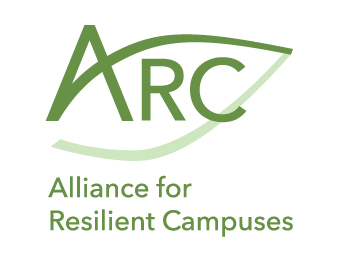Today, the Third U.S. National Climate Assessment (NCA) report was released in Washington DC and will be followed by a White House event this afternoon.
The report has been in production for several years and represents the most comprehensive and rigorous assessment ever produced of climate science, impacts (now and in the future), and options for the U.S. This remarkable effort is the work of 60 members of a Federal Advisory Committee, 240 authors, and hundreds of reviewers – all representing expertise from government, academia, NGOs, and business. The report covers 8 regions of the U.S. as well as sectors such as transportation, energy, water, and many more critical areas of the U.S. economy.
The full report as well as highlights documents can be found at http://nca2014.globalchange.gov
The report illustrates that climate impacts are being felt across all areas of the U.S. and are increasingly evident in the present. Impacts are expected to increase in the future. Many Americans are already experiencing the effects of climate change, and are considering how to respond. While some progress is being made with respect to reducing the causes of change (mitigation) as well as reducing the vulnerability of society to impacts (adaptation), the NCA indicates that there is much more work to be done - progress so far has been largely incremental. In addition to capturing the potential severity of climate impacts, the report highlights both the need and the opportunity of addressing climate change.
Higher education is already playing a critical role participating in climate assessment and in mitigation (especially through the American College & University Presidents’ Climate Commitment!). Its leadership role has been so significant and notable that the ACUPCC is highlighted in the NCA’s mitigation chapter as a successful effort: “Under the American College and University Presidents’ Climate Commitment (ACUPCC), 679 institutions have pledged to develop plans to achieve net-neutral climate emissions through a combination of on-campus changes and purchases of emissions reductions elsewhere“.
 However with respect to adaptation, higher education has been less evident in its leadership, and yesterday, to coincide with the release of the NCA, Second Nature announced the Alliance for Resilient Campuses (ARC) with 28 founding signatories and more colleges endorsing the effort even since then. This is an initiative intended to accelerate efforts on adaptation and resilience and to highlight and learn from progress across higher education and its partners. ARC is also partnering with the Resilient Communities for America (RC4A), that focuses on commitment to resilience by community leaders, and we intend to work together across campus and community, as well as with our corporate partners – resilience can’t happen independently. Our work must be a collaborative endeavor, and we encourage you to join us in both strengthening the ACUPCC and in developing our leadership in adaptation and resilience through ARC.
However with respect to adaptation, higher education has been less evident in its leadership, and yesterday, to coincide with the release of the NCA, Second Nature announced the Alliance for Resilient Campuses (ARC) with 28 founding signatories and more colleges endorsing the effort even since then. This is an initiative intended to accelerate efforts on adaptation and resilience and to highlight and learn from progress across higher education and its partners. ARC is also partnering with the Resilient Communities for America (RC4A), that focuses on commitment to resilience by community leaders, and we intend to work together across campus and community, as well as with our corporate partners – resilience can’t happen independently. Our work must be a collaborative endeavor, and we encourage you to join us in both strengthening the ACUPCC and in developing our leadership in adaptation and resilience through ARC.
As the President’s Science Advisor, Dr. John Holdren, just indicated - The NCA is the loudest alarm bell yet indicating that urgent action is needed.

Add new comment